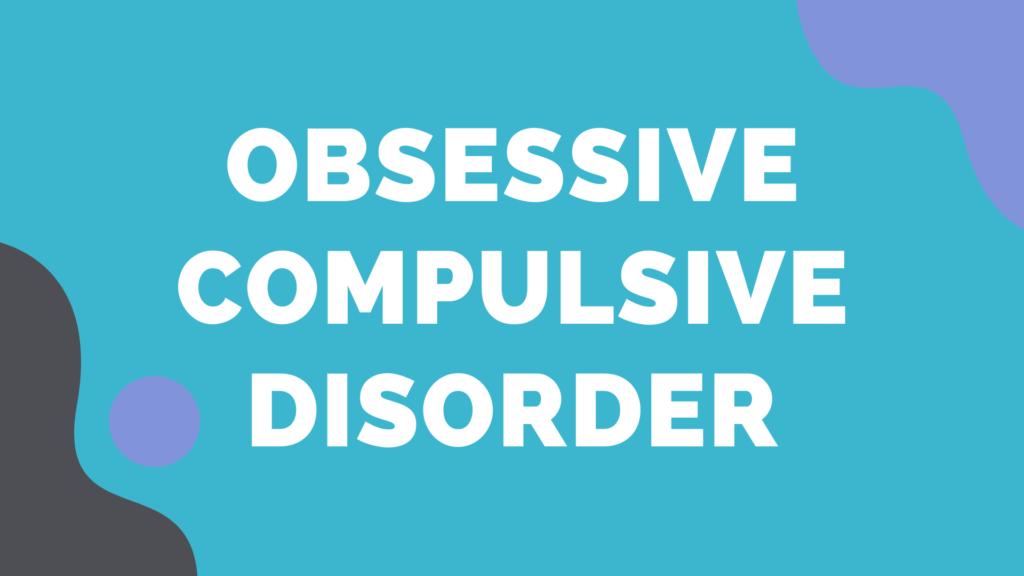
Cognitive Behavioral Therapy is the best form of treatment for OCDĬognitive Behavioral Therapy (CBT) is considered to be the best form of treatment for OCD. People with OCD do not stay with the things they fear long enough to learn the truth–that is, that their fears are unjustified and that the anxiety would have gone away anyway on its own, without a compulsion or neutralizing activity. Fear, too, originates in the mind, and in order to recover, it is important to accept that there is no escape. The real trick to dealing with obsessions I like to tell my patients is, “If you want to think about it less, think about it more.” Neither can you run from or avoid the fears resulting from your obsessions.

Studies in thought suppression have shown that the more you try to not think about something, the more you will end up thinking about it paradoxically. As biochemical events, they cannot simply be shut off at will. One of my patients used to refer to them as “My synthetic thoughts.” They are as counterfeit bills are to real ones, or as wax fruit is to real fruit. Obsessions are biochemically generated mental events that seem to resemble one’s own real thoughts, but aren’t.

Although you can resist performing a compulsion, you cannot refuse to think an obsessive thought They often feel responsible for things that no one would ever take upon themselves 3. It is rather easy to make people with OCD feel guilty about most anything, as many of them already have a surplus of it. The guilt is another excruciating part of the disorder. Only when sufferers recognize the futility of trying to resolve this doubt, can they begin to make progress. Even when an answer is found, it may only stick for several minutes, only to slip away as if it was never there. It is what causes sufferers to check things hundreds of times, or to ask endless questions of themselves or others. It can override even the keenest intelligence. Doubt is one of the more maddening qualities of OCD. I have even seen patients have doubts about whether they were actually alive or not. I have seen patients doubt their sexuality, their sanity, their perceptions, whether or not they are responsible for the safety of total strangers, the likelihood that they will become murderers, etc. In the 19th century, OCD was known as the “doubting disease.” OCD can make a sufferer doubt even the most basic things about themselves, others, or the world they live in. Unless you understand these, you cannot understand OCD. While it is not understood why this is so, these are considered hallmarks of the disorder. Two of the main features of OCD are doubt and guilt This means that if you don’t use the tools provided in cognitive behavioral therapy or if you stop taking your medication (in most cases) you will soon find yourself hemmed in by symptoms once again. The things you will have to do to treat it really control, and if you don’t learn to effectively make use of them throughout your life, you will run the risk of relapse. The current thinking is that it is probably genetic in origin, and not within our current reach to treat at that level.

It is a potential that will always be there in the background, even if it is no longer affecting your life. You can get it under control and become recovered but, at the present time, there is no cure. This means it is like having asthma or diabetes.

It is important to discriminate between the two, so as to not end up misdirecting your efforts. There are some things you will be able to change, and some you will have to accept. The concepts of change and acceptance go hand-in-hand and define each other. However, if you wish to change, you will need to accept them. You may not like some of the things on this list, as they may not be what you wish to hear. Some of these points may seem obvious, but it has always struck me as remarkable how little of this information my new patients, who are otherwise intelligent and informed people, are seen to possess coming into therapy. Putting together this type of list always seems arbitrary in terms of what to include, but suffice it to say, however, it is presented, there is a certain body of information that can make anyone’s attempts at recovery more effective. During that time, I have come to many valuable understandings that I believe are important tools for anyone planning to take on this disorder. I have been actively involved in the treatment of OCD since 1982 and have treated over 850 cases of the disorder. (Executive director of Western Suffolk Psychological Services in Huntington, Long Island, New York)


 0 kommentar(er)
0 kommentar(er)
